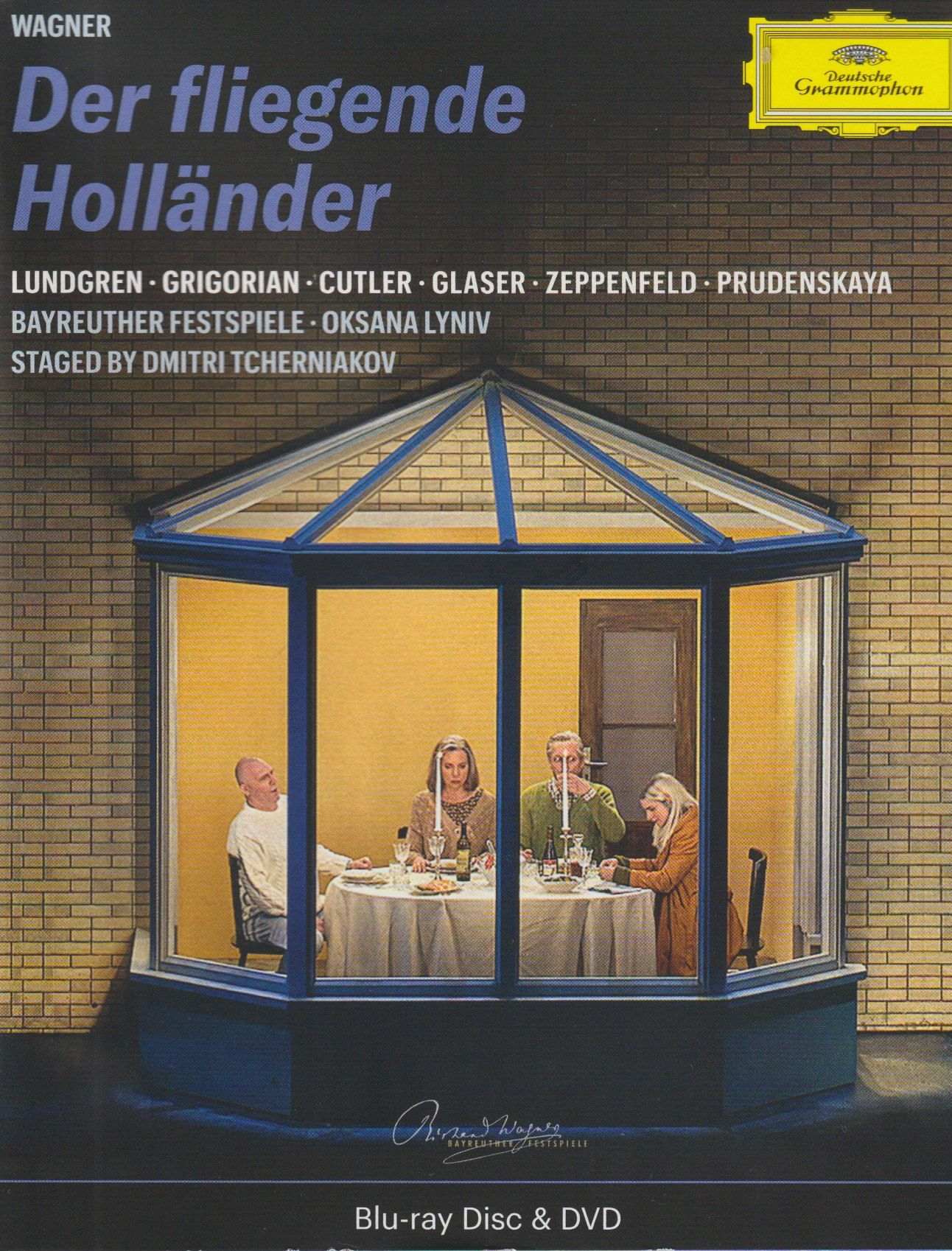Wagner’s Der fliegende Holländer from Bayreuth
Dark, oppressive, strangely compelling

Stagings are rarely traditional at Bayreuth these days, and so it is with Dmitri Tcherniakov's Dutchman. For a maritime opera that allows Wagner to write some of the most visceral sea music ever, the only liquid here seems to be the beer in a tavern. The Dutchman has returned to his home town in this story. The local bar, the central focus, is dry in the sense of no water - bringing to mind the contradition of Stefan Herheim's essentially waterless Debussy Pelléas at Glyndebourne some years ago. Walls move to create a depresing brick cityscape which occasionally brings to mind Jonathan Miller's Rigoletto, but where Miller's windows always held stories, here they are blank yellow cnvases. The angles of the buildings in-shot (Andy Sommer is the fine Video Director) occasionally invokes Fritz Lang's Metropolis film. The close is bleak in Tcherniakov's vision as the town is razed.
This was Tcherniakov’s Bayreuth debut; as it was Oksana Lyniv’s, the first ever female conductor at Bayreuth - she took the helm at Italy's Bologna Opera (at the Teatro Comunale) in January 2022. As for Tcherniakov, his Ring will be staged, conducted by Daniel Barenbom, at the Staatsoper unter den Linden, Berlin in November this year.
This is taken from a broadcast, and believe me it is far better to enjoy this in Bluray (both Bluray and DVD discs are included in the box), but at least on YouTube you can get a feel for if the production is for you or not:
Whatever one thinks of Tcherniakov’s production, the performance is a musical triumph. Lyniv paces the work beautifully, Daland, in this incarnation a businessman of some sort - is the supremely experienced Georg Zeppenfeld. The Dutchman's “Durch Sturm und bösen Wind verschlagen” sets out John Lundgrin’s stall - strong, convincing, and he has the perfect stage presence.
The Senta, Asmik Grigorian, is the real star though, and the cheers she receives at the end must have been heard far and wide. She is astonishing: throughout, one can hear every little bit of her line and how she shades it, and she is as supremely effective in duet as she is solo. Her Ballad is one of the finest, anywhere gripping, and as it progresses, ever more frightening; and just listen to how Lyniv has the strings articulate with such percision and ferocity. The orchestra positively blazes at the end of that segment. Here is her Ballad as a stand-alone video, for ease of access:
Senta appears in this production as a rebel, and so her confrontation with Erik (the fine Eric Cutler) sets sparks flying. Marina Prudentskaya is luxury casting as Mary, Senta’s nurse.
The whole experience is one of stepping into a slightly colourised 1930s film - dark, oppressive, strangely compelling. But, whatever the qualities of the production, it is really for the musical values one should invest - and the sonics. The DG sound is simply fantastic, capturing every nuance of both voices (and the chorus is magnificent) and orchestra.
